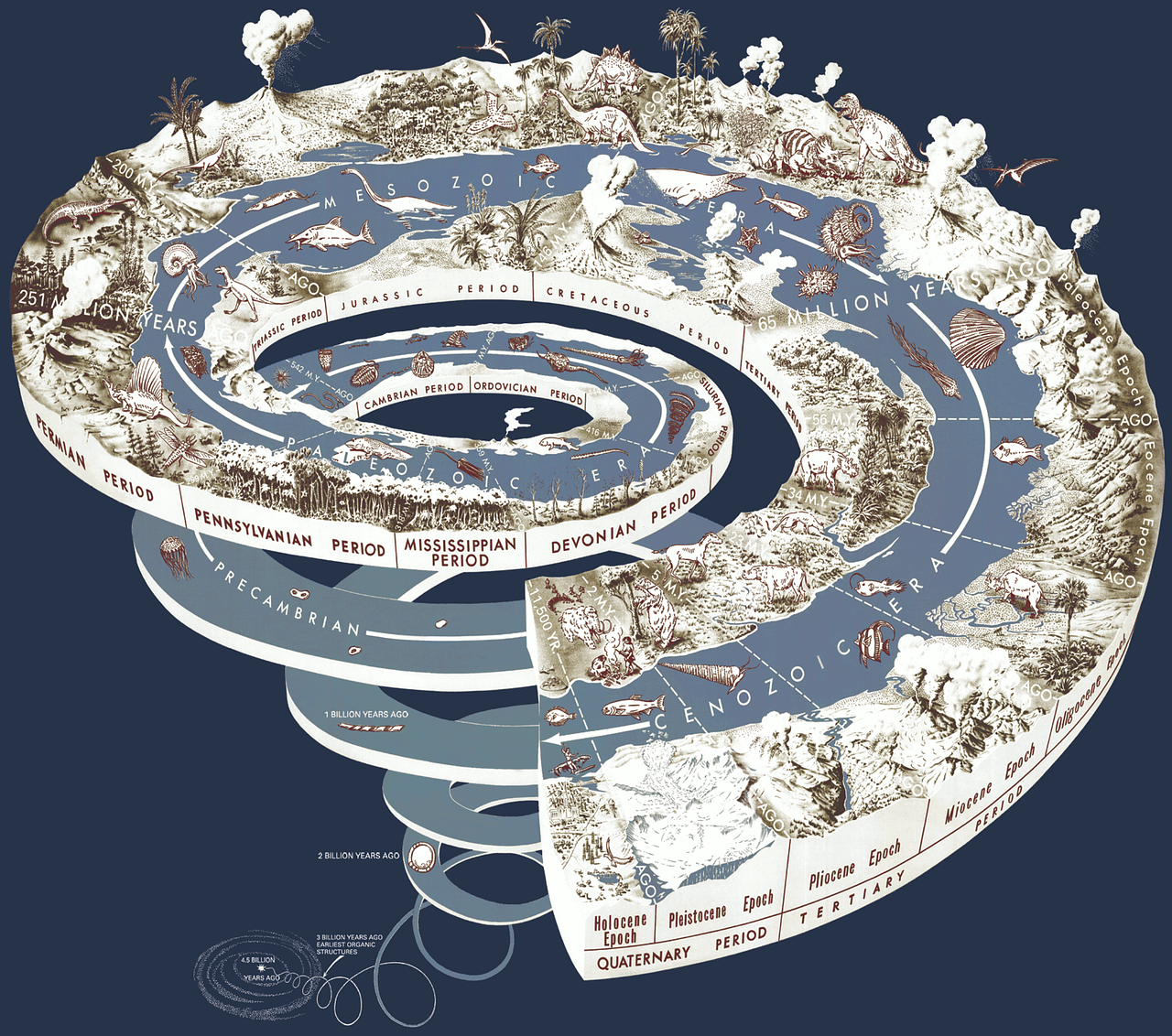Part #11 [ INTRODUCTION OF GEOLOGICAL SCIENCE ] DID YOU KNOW ABOUT GEOLOGY... ?
Geology is the study of the earth and the processes that take place in its constituent components, from the time, the mechanism of its formation until the re-establishment of these components.
(Frank D. Adams, “Geological Sciences” New York: Devor, 1938) that: "During the Middle Ages Aristotle was respected as head and leader of all philosophers, whose opinion on any subject is law and is the end result.

Some opinions of Aristotle
- Rocks are formed by the influence of star stars
- Earthquakes occur due to the explosion of dense air on earth, and this is due to heating by the fire center.
Petrology
The study of rocks (igneous rocks, sedimentary rocks, and metamorphic rocks), the origin of its formation, its classification, its formation and deposition, and its distribution both within and on the earth's surface.Mineralogy
The study of minerals, how to describe a mineral-forming rocks
megaskopis (through its physical properties, such as cleavage, scratches, and gloss)
and determining the mineral name of the description and mineral usefulness.Sedimentology
Studies that studied sedimentary rocks, including sedimentary rock formation and sedimentation processes. Study, recognize and interpret sedimentary structures, facies model types, and deposition environments.Geomorphology
The study of landscapes (natural morphology), studying geomorphological principles in relation to geology and identifying various landscapes, also studied descriptions of landscapes and geomorphological applications
for research and mapping.Geological structure
Study of changes in the forms of the earth's crust caused by the presence
the process of motion on the earth itself resulting in a geological structure of folds, fractures.Paleontology
The study of all aspects of the past lives of fossils, both macro and micro, found in rocks. Can be used to determine the relative age and settling environment and explain geological changes throughout the earth's history.Stratigraphy
The study of the sequences of rock bedding, its description, and the processes throughout the history of the formation of the bedding.Applied Geology
The application of geology to human interests in a particular field, for example: Mining Geology, Coal Geology, Oil and Gas Geology, Hydrogeology, Geophysics, Geothermal.
So, what is geology...?
check out some of my previous editions of Ecology.
Ecology#1[ Introduction to ecology ]
Ecology#2[ the interaction of organisms with the environment ]
Ecology#3[adattamento di organismi]
Ecology#5[ revolution ] did u know, social and cultural change takes place quickly
Ecology#6[Tourist environment damaged by trash visitors]
Ecology#7[WAYS OF TACKLING PLASTIC WASTE]
STEEMIT-EDUCATION OF ECOLOGY #9 [HABITAT RAJUNGAN (Portunus pelagicus) ]
10# STEEMIT-EDUCATION OF ECOLOGY [Plant interaction with soil ]
Reference
https://id.m.wikipedia.org/wiki/Aristoteles
http://www.geosetia.com/2017/01/pengenalan-geologi-definisi-dan-sejarah.html?m=1


You received a 60.0% upvote since you are a member of geopolis and wrote in the category of "geopolis".
To read more about us and what we do, click here.
https://steemit.com/geopolis/@geopolis/geopolis-the-community-for-global-sciences-update-4